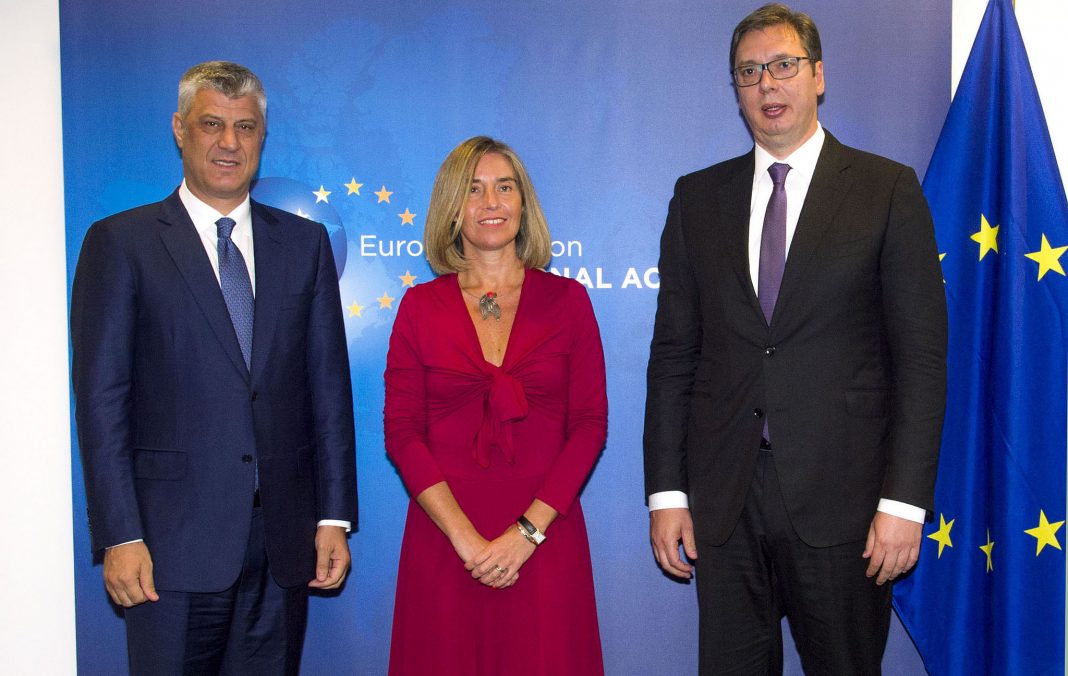WHAT DOES THE EU POSITION ON JUSTICE AND HOME AFFAIRS MEAN FOR EUROPEAN SECURITY?
Download PDF :


Open Europe (21 June 2018)
The European Commission has once again rejected some of the UK’s proposals for the post-Brexit relationship, this time in the sphere of judicial and home affairs (JHA) cooperation.
First, in a set of slides comparing EU and UK positions on security matters published on Monday, the EU has signaled that continued UK membership of the European Court of Human Rights (ECHR) will be a key safeguard for a future security agreement. If the UK is “condemned by the ECHR for non-execution of an ECHR judgment in the area concerned,” it will trigger a “guillotine clause” on the security partnership with the EU. This is despite the fact that compliance with the ECHR is not a pre-requisite for other EU judicial and policing agreements.
The Commission accused the UK of “wanting the same rights but different obligations” than member states and of creating a “risk for the integrity of the JHA area,” while demanding European Court of Justice (ECJ) oversight. This is inconsistent with the fact that it is not demanded for non-EU EEA states, and does not take into account the fact that the UK Government’s ‘red lines’ are less clear than the way the EU interprets them. Theresa May previously said that “the UK will respect the remit of the European Court of Justice” in cooperation with some EU agencies.
Then, in a speech on Tuesday, the EU chief Brexit negotiator Michel Barnier stated that the UK will not be able to access EU-only and Schengen-only police databases (Schengen databases extend to non-EU countries, but notably, the UK is not part of the Schengen Area). He also ruled out the possibility of the UK taking part in the European Arrest Warrant (EAW) – which allows member states to request the extradition of an individual from another EU country – referring again to the UK’s ‘red lines’ rejecting the free movement of people, ECJ jurisdiction, as well as the EU’s Charter of Fundamental Rights.
There are several options available to the UK as it leaves the EAW after Brexit, including the precedent of extradition agreements that the EU has with Norway and Iceland. Barnier did not mention the possibility of striking such a deal, suggesting instead that extradition will fall back on the 1957 European Convention on Extradition signed within the Council of Europe framework. He explained the EU was “ready to build on the existing” Convention, which does not apply the principle of mutual recognition and does not place a limit on the timing for extraditions. When she was Home Secretary, May said the length of the extradition procedure under the Convention “could undermine public safety.” This would not be the preferred option for the UK.
But it is not the preferred outcome for the EU either. The length and costs of the extradition procedure under this treaty are not the only issues. Another one is that a number of EU member states no longer apply the Convention, as the EAW was supposed to replace it, and will have to modify their national legislations to re-implement the treaty. The strict constraints set by the Commission are in nobody’s benefit.
The island of Ireland would be particularly hit. Northern Ireland police authorities have said that there is no alternative extradition procedure to continue effective extradition across the border. This week the police warned that the EAW is critical “to ensuring the safety of communities both in Northern Ireland and across Europe by providing for a quicker, efficient and dynamic response to crime and criminality.” A number of EU officials have also stated that pre-EAW extradition rules would be unacceptable, with German Interior Minister Horst Seehofer reportedly saying that “the EU has such an interest in keeping high-level security cooperation that we must not allow any deterioration in the operability of schemes such as the European Arrest Warrant.”
The Commission is using the opportunity of the UK’s preoccupation with Parliament’s “meaningful vote” and Conservative Party splits to draw its own ‘red lines’ and pressure May on the UK’s position towards the role of the ECJ in JHA affairs. The Government’s minimal response to Barnier’s hardline stance has left space for the Commission to adopt a more hawkish approach.
The UK’s continued membership of the EAW as it is now is unlikely, not only due to the Commission’s strict position, but also given some Eurosceptic concerns within the UK. The Warrant has been criticised for not taking into account the risks of different justice systems and different constitutional laws, such as the example of Germany where a national court can block extradition if it judges that the request is not proportionate.
Yet, there is an understanding among both parties that security is not a zero-sum game and that it would be in everyone’s interests to reach an agreement going beyond the Council of Europe’s Extradition Convention. Since 2010, the UK has extradited more than 7,000 people to the EU27, and hundreds are surrendered to the UK every year. This week the head of GCHQ Jeremy Fleming stressed how pivotal the UK’s use of European security instruments has been to prevent terrorist attacks across the continent.
The European Parliament’s Guy Verhofstadt told the Commons Brexit committee this week that while the UK cannot stay in the EAW, it should agree with the EU “an extradition agreement going as close as possible to the EAW,” especially one which would shorten delays. This type of flexible approach could be supported by some in the EU27 on the basis that it contributes to the continent’s security, even if a new extradition treaty would be more limited in scope than the EAW.
The Commission’s own ‘red lines’ in the JHA sphere are likely to result in a fall in operational capacity, which does not reflect the wishes of many member states and other EU institutions. Nor does it fall in line with the EU’s promise to protect European citizens’ security and its “strong commitment to address common challenges,” as Barnier said. Both sides need to be prepared to make concessions to strike a more comprehensive arrangement on extradition and JHA in general for the benefits of their citizens.

 EU HOSTS TALKS BETWEEN KOSOVO, SERBIA
The Balkans
25.06.2018
EU HOSTS TALKS BETWEEN KOSOVO, SERBIA
The Balkans
25.06.2018




























